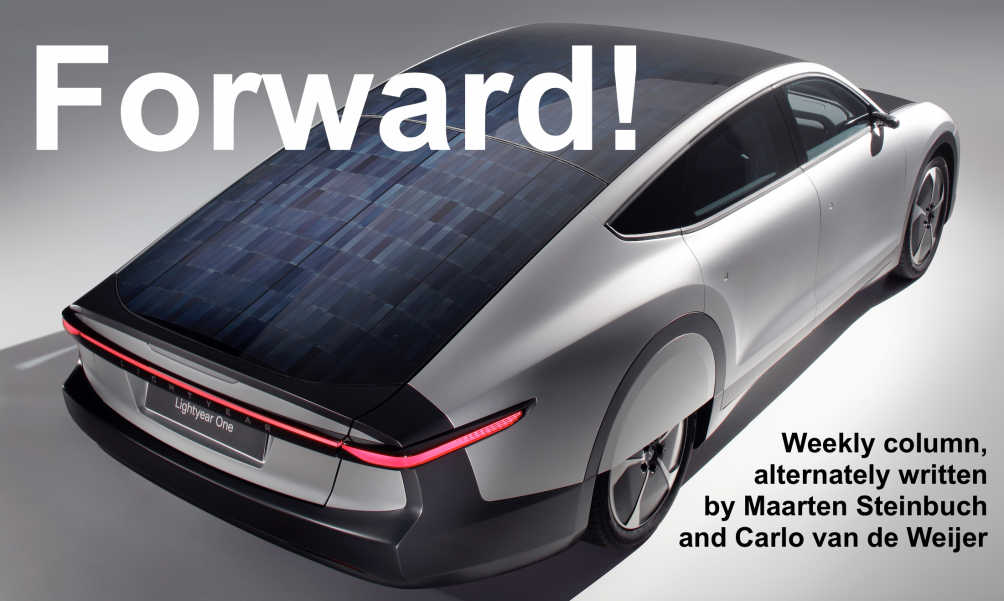
VDL NedCar‘s factories had to be closed for a while: there is a shortage of computer chips, and so the BMWs cannot be finished. At the same time, ASML has become the largest company in the Netherlands with its current stock market value, and the second or third largest company in all of Europe. What’s going on?
The answer is an obvious one: we are in a special phase of the exponential curve of the development of computing power, as described by Gordon Moore back in 1965. The doubling of computing power every eighteen months is now called Moore’s law, although it is a description and not a law of nature.

The doubling during every fixed time interval causes exponential growth, just like a covid-R number above 1. The interesting thing is that if you look at the past, exponential growth seems slow. But if you look forward, the flank of the mountain in your sights shoots up steeply. If you wonder what world your children will live in when they are your age, you should not think back to your parents, but to your grandparents when they were your age. That’s exponential thinking.
Because the automobile is a consumer product, all automobile factories are focused on keeping costs as low as possible, and that includes very tight inventory control. If there are shortages of a part, stopping production is cheaper and more practical than parking lots full of cars that aren’t quite finished.
The shortages have come about because of the confluence of a couple of things. First, we are now living in a decade where the smart car is really catching on. Compare a new mid-size car from ten years ago with one from today. Lots of expensive intelligent systems were new in the top-of-the-line class then; now they are already becoming standard in the mid-range cars. Lane-keeping, adaptive cruise control, e-call. This development will be completed in about five years when all cars will have ten cameras, radars, and lidars as standard.
Then we’ll enter a phase of mainly better software. The car has become an iPad on wheels, and the amount of computer code in a car, some 100 million lines of code or more, with dozens of computing machines and hundreds of chips for measuring and controlling parts, makes the car a complex modern device.
This decade is seeing the biggest change to car design, including the transition to all-electric propulsion. And then came the covid crisis, which caused demand for new cars to fall last year. In contrast, demand for computers, smartphones, TVs, and ear microphones skyrocketed worldwide. Many foundries, factories full of ASML machines that make computer chips, have focused entirely on meeting that demand. Now that the auto market is picking up, auto chip makers need to accelerate again. In the end, it’s all good news for ASML, and also for NXP as the world’s largest supplier of automotive chips.
Maarten Steinbuch and Carlo van de Weijer are alternately writing this weekly column, originally published (in Dutch) in FD. Did you like it? There’s more to enjoy: a book with a selection of these columns has just been published by 24U and distributed by Lecturis.
